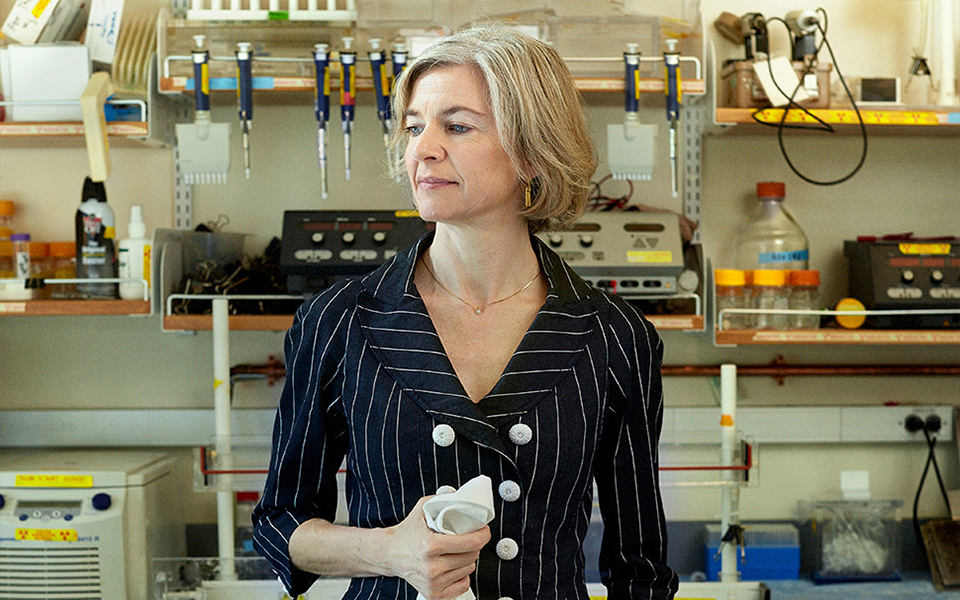Politico50: Jennifer Doudna
Two years ago, Jennifer Doudna, a Berkeley biochemist, won a $3 million prize for her role in discovering a breakthrough way to use the gene-editing tool CRISPR to alter DNA sequences. Now she is requesting a temporary halt on CRISPR’s use in certain circumstances where human heritability is at play. The reason for Doudna’s public, if surprising, warning is that the scientific, ethical and political implications of gene-editing are so staggering. Already, scientists have used the technology to edit the genomes of mice, rats and monkeys; human embryos are the obvious next step. CRISPR allows scientists to edit genomes with more precision and ease than ever before, increasing researchers’ optimism that science can help cure genetic diseases by simply snipping the flawed sequences out of the genome. That’s the upbeat, near-term vision. In the future, the new tool could also in theory make edits that enhance qualities like beauty or intelligence (or less desirable traits), and if applied to reproductive cells, such changes would not only affect the person treated with gene editing, but his or her offspring, potentially becoming a permanent part of the human genome…


